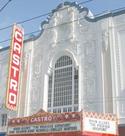Personal experience made me a skeptic about racial progress. When I was 8, I was upset when our Japanese neighbors in Los Angeles were sent off to internment. In 1963, I traveled across the Deep South, awed by the totality of poverty, segregation and discrimination.
But the election of Barack Obama restored a degree of faith in the American experiment, and hope for an economic and social turnaround. I was inspired by the inauguration and am encouraged by initial and intended actions. I’m reasonably sure that significant reforms will occur. read more »






















